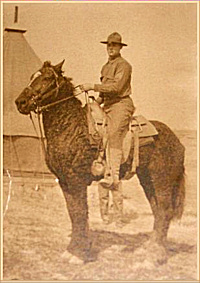Nestled in the heart of the American West, Nevada boasts a rich history steeped in tales of exploration, mining, and cowboy culture. However, hidden within the annals of the state’s history lies a remarkable and lesser-known story—the origin of the Curly Horse. These unique equines, renowned for their distinctive curly coats and gentle temperament, have their roots firmly planted in the Silver State. In this article, we will delve into the intriguing history of the Curly Horse, its ties to the rugged landscapes of Nevada, and the role of the International Curly Horse Organization.
The Curly Horse’s Mysterious Beginnings
The story of the Curly Horse is shrouded in mystery and intrigue, much like the Nevada desert itself. These horses are known for their unusual curly coats, which can vary from loose waves to tight ringlets, and their unique hypoallergenic properties, making them a preferred choice for riders with allergies. The origins of the breed, however, remained a puzzle until relatively recent times.
In the late 1800s, as settlers and pioneers pushed westward across the United States, reports of curly-coated horses began to surface in the Great Basin region, encompassing parts of Nevada, Utah, and Oregon. These horses were said to have been discovered among the wild mustang herds that roamed the vast, arid landscapes.
The Most Likely Theory: The Basque Connection
While several theories abound regarding the origin of the Curly Horse, the most plausible one points to the Basque people, who were known for their shepherding skills and equestrian traditions. It is believed that Basque immigrants who settled in the American West may have introduced curly-coated horses to the region.
The Basque people, who hail from the Pyrenees Mountains between France and Spain, have a long history of sheepherding. They brought with them their expertise in breeding horses suitable for herding and traversing the rugged terrain. The curly coat could have been a natural adaptation that emerged over time in response to the harsh environmental conditions of the American West, making these horses particularly well-suited to the region.
Nevada’s Role in Preserving the Curly Horse Breed
Nevada’s vast open spaces and challenging landscapes played a crucial role in shaping the Curly Horse’s development. The breed’s adaptability, endurance, and strength were qualities essential for surviving the rugged terrain and harsh weather conditions of the state’s high deserts and mountain ranges.
Nevada horse breeders and enthusiasts have also played a significant role in preserving and promoting the Curly Horse breed. In 1971, a dedicated group of horse lovers established the American Bashkir Curly Registry (ABCR) to document and promote the breed’s unique characteristics. The ABCR, headquartered in the small Nevada town of Eureka, has worked tirelessly to preserve the bloodlines of these remarkable horses. Read more about this here: https://www.cowboyshowcase.com/the-dameles-and-the-curly-horse.html
The Role of the International Curly Horse Organization
The International Curly Horse Organization (ICHO) is a vital player in the worldwide Curly Horse community. This organization has expanded the reach and influence of the breed far beyond Nevada’s borders. The ICHO provides a platform for breeders, owners, and enthusiasts to connect, exchange information, and celebrate the remarkable qualities of Curly Horses.
ICHO promotes responsible breeding practices, maintains a comprehensive registry of Curly Horses, and hosts events that showcase the breed’s versatility. Through its efforts, the organization has helped elevate the Curly Horse’s profile on the global stage.
Curly Horses Today
Today, the Curly Horse is no longer a hidden gem of the American West. It has found its way into the hearts and stables of horse enthusiasts around the world. Known for their friendly and gentle nature, they are sought after for various equestrian activities, including trail riding, dressage, and therapeutic riding programs.
The distinctiveness of the Curly Horse extends beyond their appearance. Their hypoallergenic qualities make them an ideal choice for riders with allergies, and they have even found a place in equine therapy programs, helping individuals with physical and emotional challenges.
Thanks to the efforts of organizations like the International Curly Horse Organization (ICHO) and others, the Curly Horse has gained recognition and popularity worldwide. They serve as a testament to the enduring appeal of the Curly horse and its ability to captivate people all over the world.
